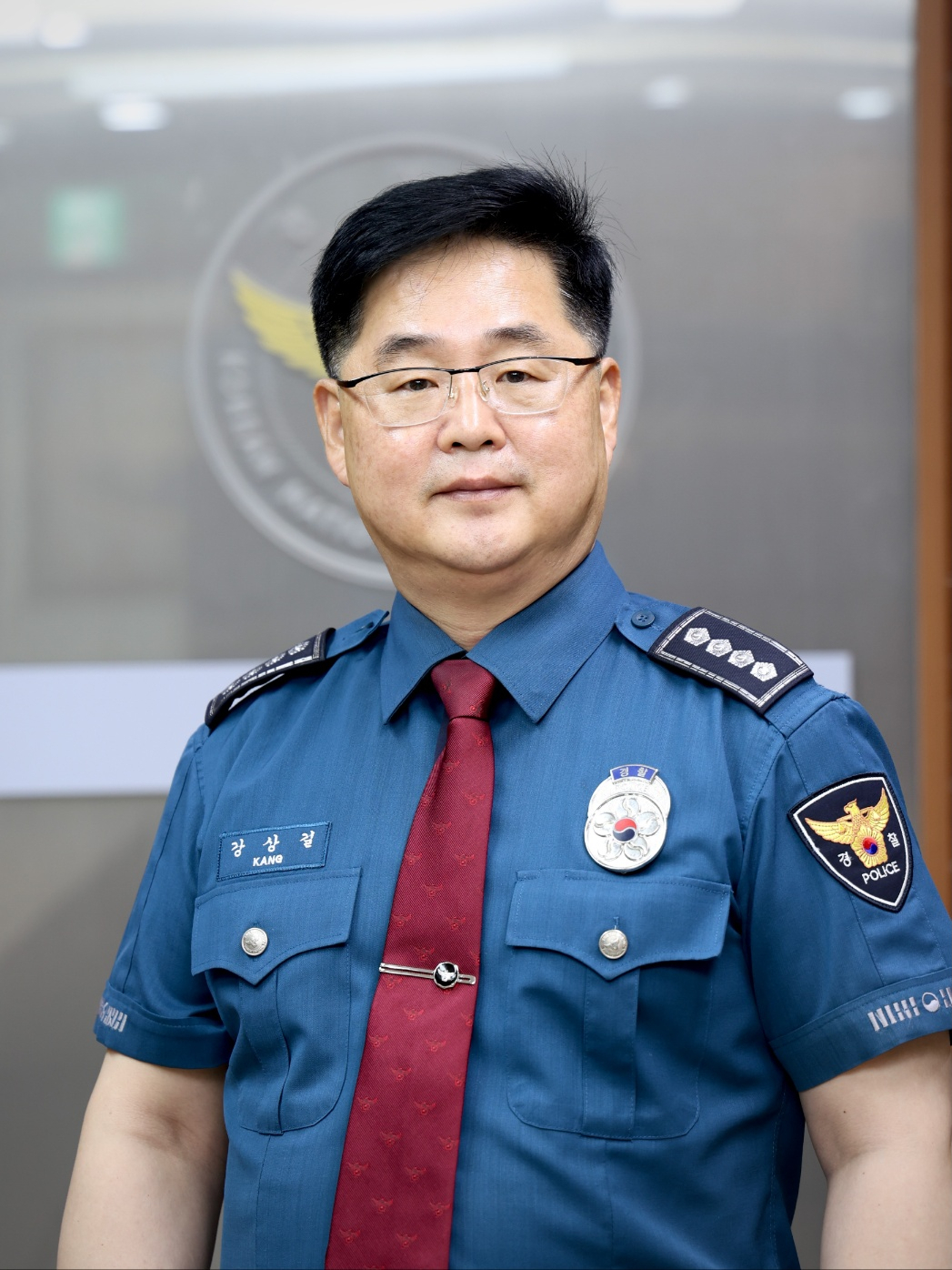 |
Director Kang Sang-gil of the Korea National Police Agency's Future Policing Policy Division (KNPA) |
By Kang Sang-gil
In an unprecedentedly short period, South Korea achieved remarkable economic development, often referred to as the "Miracle on the Han River." Since the 2000s, international organizations such as the Organization for Economic Cooperation and Development, the International Monetary Fund, the World Bank, the Development Assistance Committee and the Paris Club have acknowledged South Korea's status as an advanced nation.
In 2010, Seoul hosted the G20 Summit. In July 2021, the UN Conference on Trade and Development recognized the Korean economy as developed, followed by the UN Statistics Division in May 2022, officially classifying Korea as a developed country. This makes Korea one of few countries to transition from an aid recipient to an aid donor and the first country UNCTAD shifted from the status of being developing to developed.
Two faces of science, technology
The foundation of Korea's elevated international standing lies in the exceptional talent and diligence of its people, which has propelled significant advancements in science and technology. Science and technology are not the only indicators of Korea's development; they are also the driving forces behind its growth. Competition among countries and corporations is becoming increasingly fierce, as seen in the race to develop generative artificial intelligence, which was sparked by ChatGPT. It is not far-fetched to envision a future where AI advisors, akin to KITT from "Knight Rider" or Jarvis from "Iron Man," assist in real-time crime tracking and provide optimal response strategies.
However, there are considerable concerns about the negative repercussions. Crimes facilitated through the dark web, digital sex crimes, virtual asset-related offenses, remote-controlled financial crimes, industrial espionage, hacking and cyberterrorism are all on the rise. These crimes transcend traditional boundaries of time and space, evolve rapidly and have a broader impact, affecting a more extensive range of targets compared to conventional crimes.
Scientific policing
In this context of rapid changes in public safety and societal shifts such as declining birth rates, maintaining current police capabilities requires the integration of advanced scientific technology into policing -- a concept also known as scientific policing.
To support scientific policing, the Korean National Police Agency announced the Police Future Vision 2050 in September 2022 and established the Future Policing Policy Bureau as its control tower. Research and development in policing, which began with a budget of 2.2 billion won ($1.6 million) in 2015, has increased to 56.7 billion won this year after collaborating with the Ministry of Science and ICT. The developments include uncrewed patrol robots, precise location tracking for crime victims and cybercrime countermeasures, with these innovations being gradually implemented in the field.
For instance, the Visible 112 system, which shares video and location data of those who call the hotline in real time, helps greatly with rapid on-site responses and rescues. Foldable shields and next-generation field vests are also currently being prepared to be distributed to the police on-site to help enhance their field response capabilities. Forensic capabilities are also expected to be significantly enhanced through its smart fingerprint identification system and its brainwave detection program used in polygraph tests. Developments regarding uncrewed patrol robots and discussions regarding Urban Air Mobility for police are also underway.
For global safety
Public safety is closely linked to economic stability. It is generally accepted in academic research and investment analysis that there is a correlation between crime rates and economic growth. Domestic and international businesses are reluctant to invest in areas with unstable public safety. This is why public safety is considered a "public good" and also as a "social overhead capital.“
Tourism, which requires a foundation of safety, is also impacted. People of various nationalities who have either visited or lived in Korea while also traveling to different countries acknowledge Korea's public safety. Unlike some other countries where night operations are limited due to crime, in Korea, one can generally walk around the streets safely, 24 hours a day.
Enhancing our police capabilities and stable public safety system through scientific policing can further protect the foundation of economic growth. This underscores the need for an increased investment in police R&D, which currently stands at about 0.2 percent of the national R&D budget. Furthermore, promoting the public safety industry based on science and technology can play a significant role in creating national interest.
Scientific policing also serves as a frontline defense for global security. In an era of shared threats and transnational, hyper-connected crimes, the collaboration between the Korean National Police Agency and the North Rhine-Westphalia Police of Germany to open a Scientific Policing Cooperation Center for cooperation and to promote science and technology-based research is a prime example.
The ongoing and future efforts of the Korean police to safeguard the daily lives of people, contribute to national development and lay down the foundation for global security through scientific policing are truly a work in progress.
---
Kang Sang-gil is the director of the Future Policing Policy Division at the Korean National Police Agency. The views expressed in this article are his own. -- Ed.






![[Today’s K-pop] Blackpink’s Jennie, Lisa invited to Coachella as solo acts](http://res.heraldm.com/phpwas/restmb_idxmake.php?idx=644&simg=/content/image/2024/11/21/20241121050099_0.jpg)
